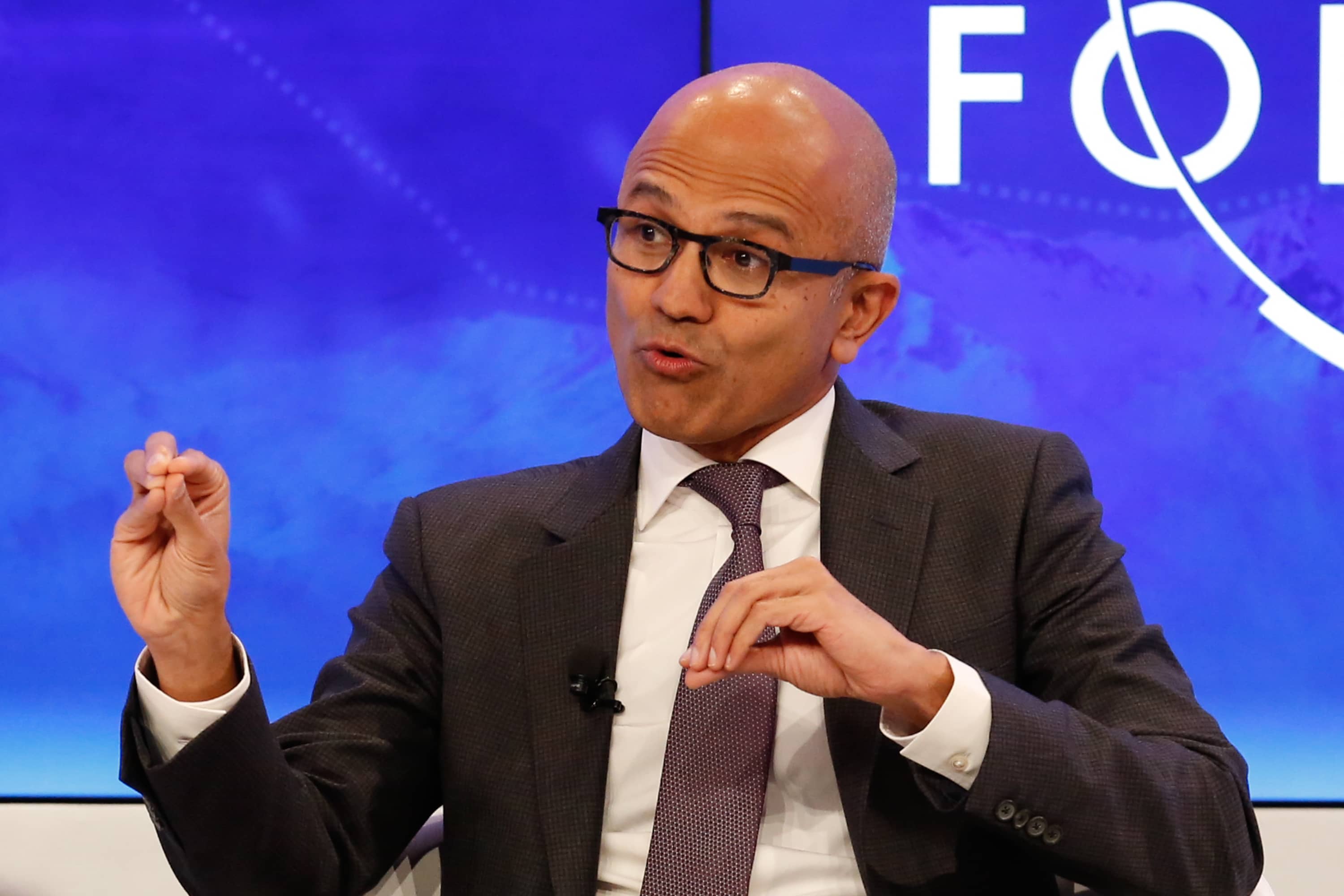Microsoft puts political contributions on hold after Capitol siege

Satya Nadella speaking at the 2016 World Economic Forum in Davos, Switzerland.
David A. Grogan | CNBC
Microsoft said Monday it has put political contributions on hold following the storming of the Capitol in Washington last week as Congress was in the process of certifying the Electoral College results for the 2020 presidential election.
The change at one of the most valuable public companies in the world comes after some employees objected to the contributions to people whose values don’t always go along with those that the company espouses. Facebook also announced a plan to cease political contributions for the moment on Monday, and over the weekend JPMorgan Chase and Goldman Sachs announced six-month suspensions over the weekend.
Employees are able to allocate some of their income to the Microsoft Political Action Committee, which is then disbursed based on input from a steering committee, according to Microsoft’s website.
“Microsoft’s political action committee decided last Friday that it will not make any political donations until after it assesses the implications of last week’s events,” the company said in a statement. “The PAC regularly pauses its donations in the first quarter of a new Congress, but it will take additional steps this year to consider these recent events and consult with employees.”
Microsoft also temporarily paused contributions from its MSPAC in 2019 after employees’ protests.
Data from the Federal Election Commission shows that MSPAC contributed money for the elections of Sen. Josh Hawley of Missouri in 2016 and Sen. Ted Cruz of Texas in 2018. Both Cruz and Hawley opposed the certification of the Electoral College votes, which put Joe Biden ahead of incumbent Donald Trump.
Last week before the siege, employees spoke out against certain MSPAC contributions, including one to Sen. Lindsay Graham of South Carolina. Graham had introduced legislation meant to boost law-enforcement access to encrypted data, and Microsoft has been in favor of increasing privacy for customers.
— CNBC’s Lauren Feiner contributed to this report.
WATCH: The massive cyber attack that hit government agencies and Microsoft, explained: CNBC After Hours




